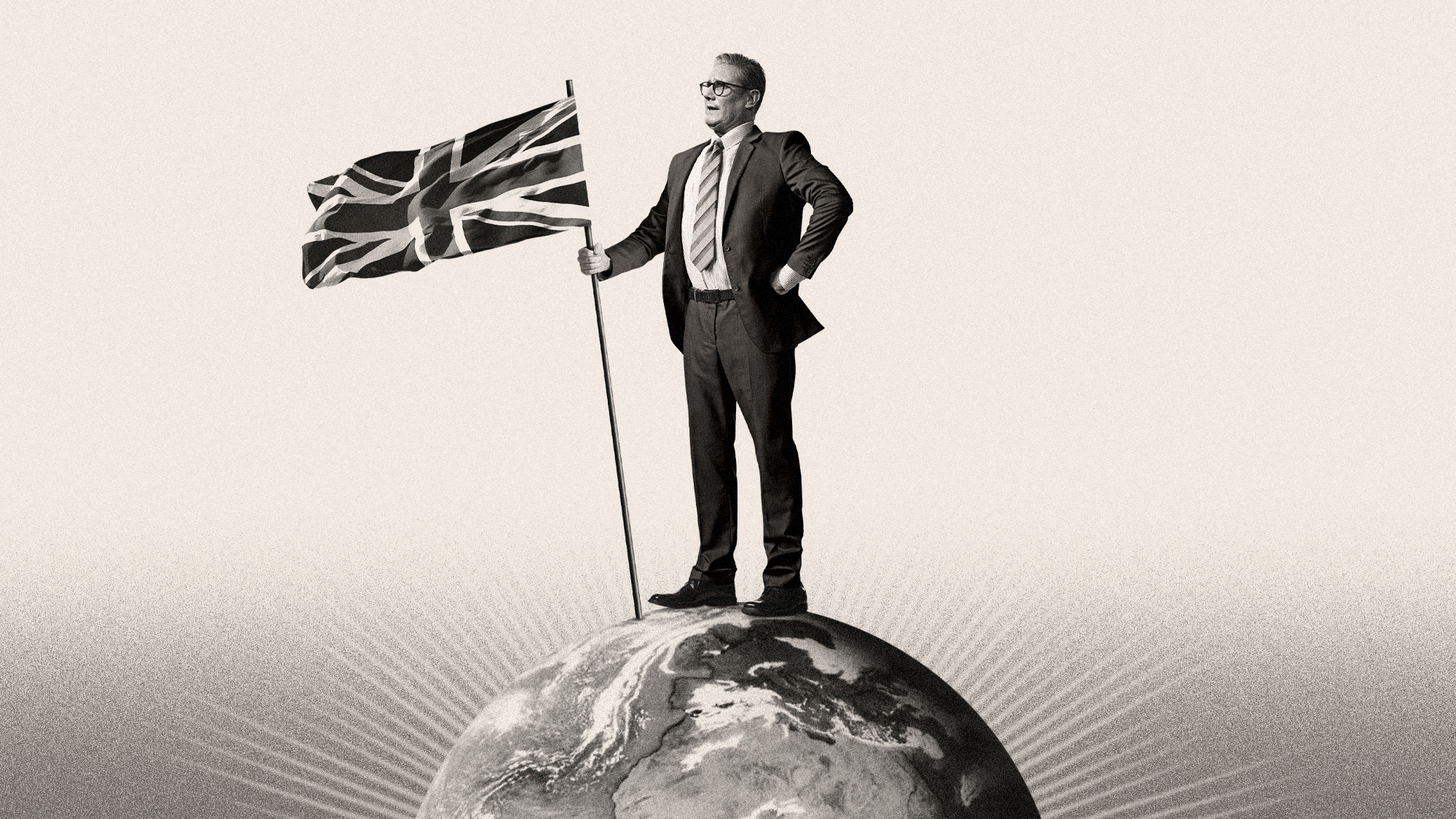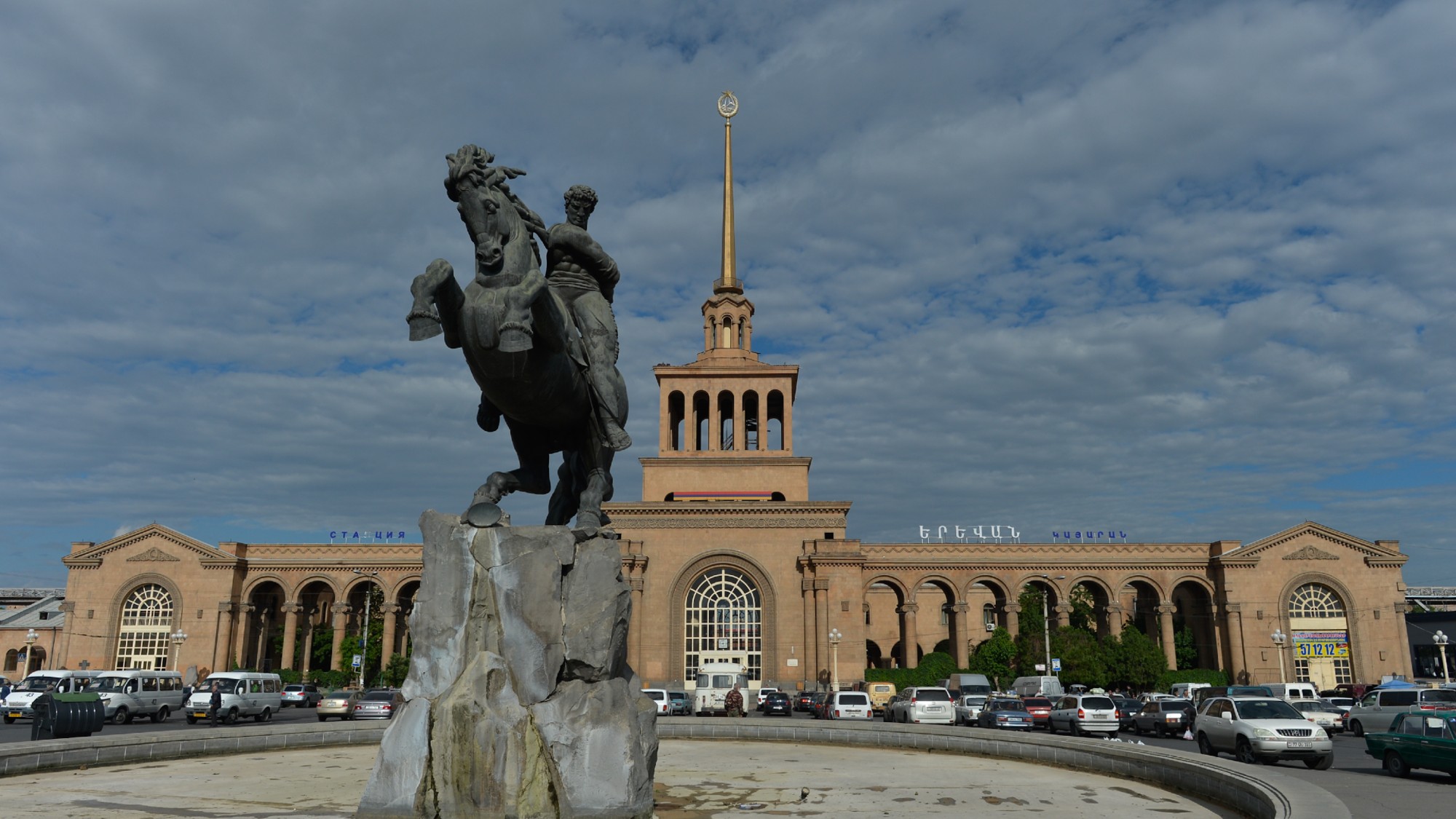Has Starmer put Britain back on the world stage?
UK takes leading role in Europe on Ukraine and Starmer praised as credible 'bridge' with the US under Trump

A free daily email with the biggest news stories of the day – and the best features from TheWeek.com
You are now subscribed
Your newsletter sign-up was successful
"It was the day Britain finally put Brexit behind it and assumed its new role in Europe," said The Telegraph's Europe editor James Crisp.
On Sunday Keir Starmer hosted European leaders in London – with "nothing less than the security of the continent at stake". The prime minister proposed a "coalition of the willing", led by France and the UK, Europe's two nuclear and major military powers, and Germany, to protect Ukraine after a peace deal.
In the painful aftermath of Brexit, Britain "went missing from the world stage". Now in Europe a "new world order is being built before our eyes", and Britain is "leading the pack".
The Week
Escape your echo chamber. Get the facts behind the news, plus analysis from multiple perspectives.

Sign up for The Week's Free Newsletters
From our morning news briefing to a weekly Good News Newsletter, get the best of The Week delivered directly to your inbox.
From our morning news briefing to a weekly Good News Newsletter, get the best of The Week delivered directly to your inbox.
'Back in the international diplomacy game'
Starmer's first months in Downing Street have been "unsteady to say the least", said Politico's Esther Webber. Domestically, he has taken a "hammering in the polls". But internationally, Starmer has played an "increasingly visible and assured role in transatlantic diplomacy". One of his "supposed weaknesses" – a "lack of ideological conviction" – might make him "a suitable broker between players with wildly different outlooks".
Starmer's first meeting with Donald Trump actually "contained some wins" – "even if the biggest prize, American security guarantees for a Ukraine peace deal, remained elusive". Labour insiders and European allies are "asking if his moment has arrived".
Analysts agree that Starmer has "put the UK firmly back in the international diplomacy game", said Agence France-Presse. "Post-Brexit we've really struggled to find our identity," said Evie Aspinall, director of the British Foreign Policy Group think-tank. Starmer hasn't had much foreign policy experience – but he has shown that he can "really step up on the world stage", she told AFP.
"We are never going to be the big world power that we once were," she added. But this is a "sign of us finding our feet and finding where we potentially could lead".
A free daily email with the biggest news stories of the day – and the best features from TheWeek.com
'The purest wishful thinking'
Starmer deserves praise for "taking a leading role in Europe" after Trump's "betrayal", said The Independent's John Rentoul. Some Labour figures thought this could be his "Falklands moment": as when Margaret Thatcher reversed her unpopularity by being "resolute in an international crisis". But that was the "purest wishful thinking". Trump and J.D. Vance's "ambush" of Zelenskyy – a "televised punishment beating" the Brits didn't see coming – "wiped out" any "gains" from Starmer's meeting with Trump. If Starmer thought he was a "bridge between Trump and European leaders", Trump has "blown it up".
Let's not forget William Gladstone's dictum, said The Times: the first principle of foreign policy is "good government at home". Starmer should remember that voters have "more prosaic matters" on their minds than "international plaudits". He will be judged on his domestic agenda: growing the economy and improving public services. His pledge to "ramp up defence spending" leaves an already cash-strapped government facing "unpalatable choices".
International affairs are rightly consuming much of Starmer's attention, but the "risk remains that a prime minister distracted by Ukraine will fail to drive forward the change this country needs".
Harriet Marsden is a senior staff writer and podcast panellist for The Week, covering world news and writing the weekly Global Digest newsletter. Before joining the site in 2023, she was a freelance journalist for seven years, working for The Guardian, The Times and The Independent among others, and regularly appearing on radio shows. In 2021, she was awarded the “journalist-at-large” fellowship by the Local Trust charity, and spent a year travelling independently to some of England’s most deprived areas to write about community activism. She has a master’s in international journalism from City University, and has also worked in Bolivia, Colombia and Spain.
-
 How the FCC’s ‘equal time’ rule works
How the FCC’s ‘equal time’ rule worksIn the Spotlight The law is at the heart of the Colbert-CBS conflict
-
 What is the endgame in the DHS shutdown?
What is the endgame in the DHS shutdown?Today’s Big Question Democrats want to rein in ICE’s immigration crackdown
-
 ‘Poor time management isn’t just an inconvenience’
‘Poor time management isn’t just an inconvenience’Instant Opinion Opinion, comment and editorials of the day
-
 How corrupt is the UK?
How corrupt is the UK?The Explainer Decline in standards ‘risks becoming a defining feature of our political culture’ as Britain falls to lowest ever score on global index
-
 ‘The West needs people’
‘The West needs people’Instant Opinion Opinion, comment and editorials of the day
-
 Vietnam’s ‘balancing act’ with the US, China and Europe
Vietnam’s ‘balancing act’ with the US, China and EuropeIn the Spotlight Despite decades of ‘steadily improving relations’, Hanoi is still ‘deeply suspicious’ of the US as it tries to ‘diversify’ its options
-
 ‘Various international actors hope to influence the result for their own benefit’
‘Various international actors hope to influence the result for their own benefit’Instant Opinion Opinion, comment and editorials of the day
-
 The Mandelson files: Labour Svengali’s parting gift to Starmer
The Mandelson files: Labour Svengali’s parting gift to StarmerThe Explainer Texts and emails about Mandelson’s appointment as US ambassador could fuel biggest political scandal ‘for a generation’
-
 Will Peter Mandelson and Andrew testify to US Congress?
Will Peter Mandelson and Andrew testify to US Congress?Today's Big Question Could political pressure overcome legal obstacles and force either man to give evidence over their relationship with Jeffrey Epstein?
-
 Reforming the House of Lords
Reforming the House of LordsThe Explainer Keir Starmer’s government regards reform of the House of Lords as ‘long overdue and essential’
-
 The ‘mad king’: has Trump finally lost it?
The ‘mad king’: has Trump finally lost it?Talking Point Rambling speeches, wind turbine obsession, and an ‘unhinged’ letter to Norway’s prime minister have caused concern whether the rest of his term is ‘sustainable’